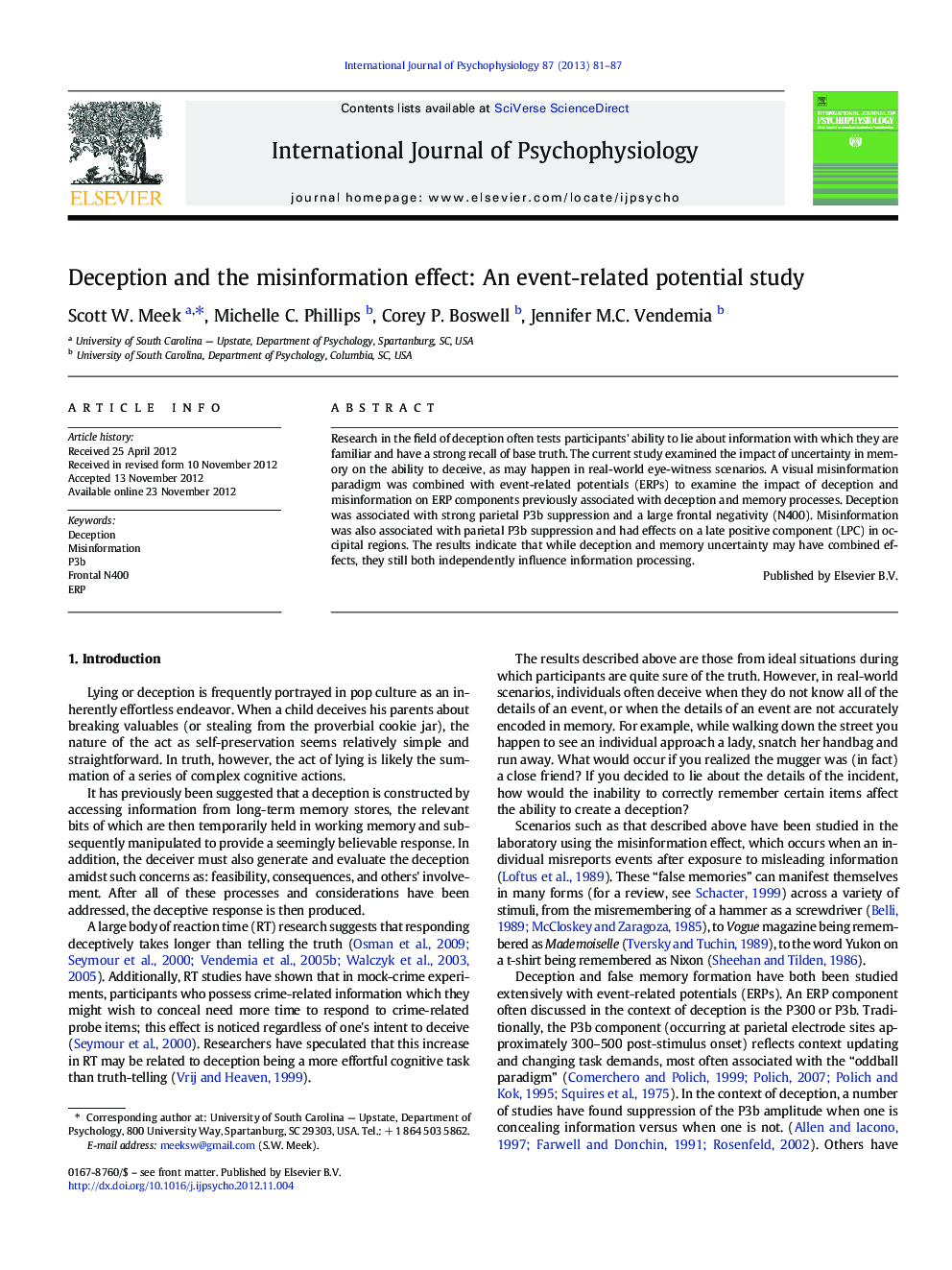| Article ID | Journal | Published Year | Pages | File Type |
|---|---|---|---|---|
| 930471 | International Journal of Psychophysiology | 2013 | 7 Pages |
Research in the field of deception often tests participants' ability to lie about information with which they are familiar and have a strong recall of base truth. The current study examined the impact of uncertainty in memory on the ability to deceive, as may happen in real-world eye-witness scenarios. A visual misinformation paradigm was combined with event-related potentials (ERPs) to examine the impact of deception and misinformation on ERP components previously associated with deception and memory processes. Deception was associated with strong parietal P3b suppression and a large frontal negativity (N400). Misinformation was also associated with parietal P3b suppression and had effects on a late positive component (LPC) in occipital regions. The results indicate that while deception and memory uncertainty may have combined effects, they still both independently influence information processing.
► We examined the impact of memory conflict on deception with ERPs. ► We created conflict in long-term memory via a misinformation paradigm. ► Deception workload created stronger suppression of the P3b and a stronger N400. ► Misinformation paired with deception increased P3b suppression.
